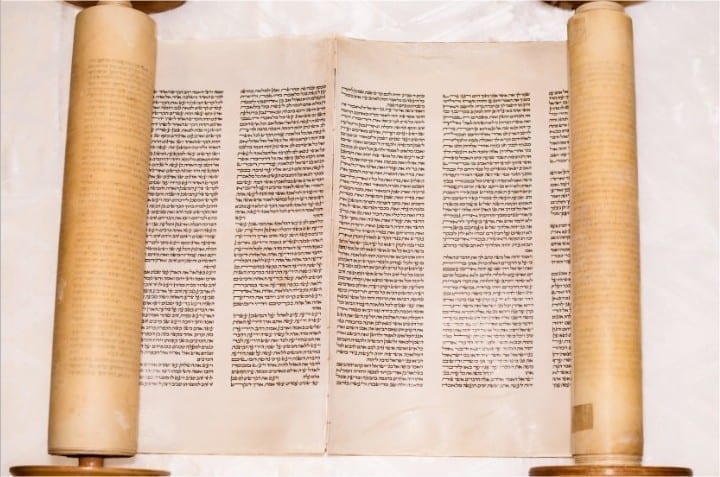
In this week’s parshah, Vayechi, 12 heroes, the shivtei kah (G-dly tribes), gather around their dying father Yaakov. All of them are handsome and holy. When we read these lines it makes us wonder, “When I am about to depart this world, will I have such nachat (satisfaction) seeing my children gathered around me?”
The neshamot of this generation, however, are not the neshamot of yesteryear. The souls we brought into this world are tired. Have you noticed how weary their faces look? I see 15- and 16-year-old boys and girls who look like they’ve gone through life’s greatest traumas. They stuff themselves with Vitamin C before a test, Vitamin B afterwards, and Omega 3 during. “Kara ravatz ke’aryeh,” they sleep like lions, a sleep that’s deep and endless. Who can wake them up? And why are the generations getting weaker and weaker?
On the pasuk in this week’s parshah telling us that Yaakov lived until the age of 130, the Ohr Hachaim asks, “Why did those generations have longer lifespans?” Noach lived until 930; Moshe until 120; and since then the numbers keep growing smaller. He answers the question with a mashal about a king who wished to have an exquisite crown made for him. He gave his servants a huge number of precious gems and asked them to cut and polish them. As time went on, though, he noticed that they were working more and more slowly, so he decided to allot them fewer stones in order to alleviate their workload. Similarly, explains the Ohr Hachaim, every day given to us by Hashem is a diamond, in exchange for which we are expected to fill certain expectations.
When Hashem sees how breathless and sapped of energy we are, He doesn’t want to burden us, so He only gives us as many as we can handle. While it true that the generations are getting weaker, we can still expect one thing from this new generation, the arrival of Moshiach, and the Ohr Hachaim explains the reason why beautifully. As the Torah describes, when Yaakov was on his deathbed he was infused with a sudden surge of strength and sat up in bed, “vayitchazeik Yaakov.”
In the same vein, this Shabbat is called “Shabbat Chazak.” Why attribute strength to the end rather than the beginning? Because it is only when we are aware of our weakness that we are truly powerful. This new generation knows that it is weak, which is why it will merit to see Moshiach. The Torah teaches that real strength comes when we see the end, that is, when we relinquish control. The Midrash says, “Ein shilton beyom hamavet,” there is no control on the day of one’s death. Indeed, Moshe forgot the Torah on that day; the great David Hamelech was terribly weak, and Yaakov bowed to his own son Yosef. But that is what makes us chazak. It is our perception that we are in control that weakens us, and when we give up this distorted belief we become strong.
Throughout the Tanach we see an interesting pattern among siblings, that the older ones were weaker than their younger counterparts: Hevel was stronger than Kayin; Ephraim stronger than Menasheh, etc. The Baal Haturim notes that the gematria of Reuven, Yaakov’s eldest, is “lo bechor,” not the firstborn. Why are the elder children weaker? Because when their parents started out on the journey of parenthood they had too much control. “Bechori ata, kochi vereishit oni,” Yaakov tells Reuven. “You are my firstborn, my power and the first of my strength.” You were born when I still thought I could change the world. But as long as a parent feels he is in control, he is essentially weak.When my generation was growing up, we still thought we had power. We were too embarrassed to ask for a private tutor when we needed help in school.
Today’s generation asks for assistance. They admit “I need help!” without shame, and because they’ve relinquished control they are much stronger than we were. They are the generation that will bring Moshiach. When will Moshiach come? That, we don’t know. “Bikeish Yaakov legalot et hakeitz venistam mimeno.” Yaakov wanted to tell us when the End of Days would come but he was prevented from doing so.Why doesn’t Hashem want us to know? Wouldn’t it be a relief if we were told ahead of time, “You’ll get married in two years; you’ll own a house in five years’ time”?
Perhaps, but the Midrash tells us that the more a generation waits in the dark, the more it depends on Hashem. Yes, we become weaker, but we also become more powerful because it makes us slowly open our fists and relinquish control. “Liyshuatcha kiviti Hashem,” says Yaakov in this week’s parshah, “I hope for Your salvation.” Comments the Midrash, “Hakol bekivuy,” a person can attain everything with hope: emunah bekivuy, tefillah bekivuy, geulah bekivuy. Kivuy means being completely dependent on Hashem.
We call our generation passive, but they are really the generation of hope. When a new mikvah is constructed, a deep pit must be dug so that the water has a place in which to gather. This is the generation of today: it may seem lowly and empty, but it has more than enough room for the “rain,” for the geulah, because it is mekaveh. As long as we think everything rests on our shoulders we are weak. We must always remember that the truly strong are those who have lifted up their hands and given control back to the Almighty. Chazak chazak venitchazeik.
